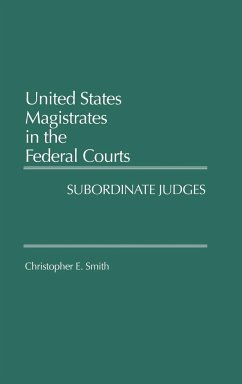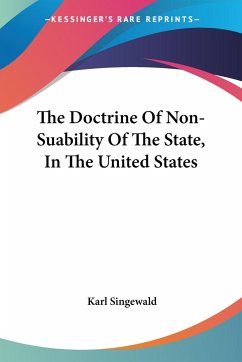Written for social scientists who study the judiciary, legal scholars, judges, and others who are interested in the workings of the federal courts, this volume offers a comprehensive examination of the role of U.S. magistrates--the relatively invisible subordinate judicial officers within the federal district courts. The study is unique in its use of an observation methodology: the author was able to study U.S. magistrates during all of their daily activities and observe their interactions with other actors in the federal judiciary. Particularly valuable are its insights into such functions as pretrial conferences, meetings with litigants, and other situations normally beyond the purview of scholars and the public. The author focuses throughout on both the development of the magistrates' varied roles and their consequences for the federal judicial system. After examining magistrates' roles within several representative courts in detail, the author analyzes the factors which influence the development of these diverse roles and identifies the specific effects--both planned and unplanned--that the subordinate judicial officers have upon the court system. Smith refutes a commonly held view that district judges control the definition of magistrates' roles and concludes that in some cases, especially with regard to the coercion of litigants, the magistrate system's effects cannot be seen to be completely beneficial. In addition, the book contains an in-depth study of the appointment process for magistrates complete with a case history of the merit selection committee process. The author documents the influence of district judges over the merit selection process, adding concrete support to scholarly arguments about the inherently political nature of judicial selection.
Hinweis: Dieser Artikel kann nur an eine deutsche Lieferadresse ausgeliefert werden.
Hinweis: Dieser Artikel kann nur an eine deutsche Lieferadresse ausgeliefert werden.








